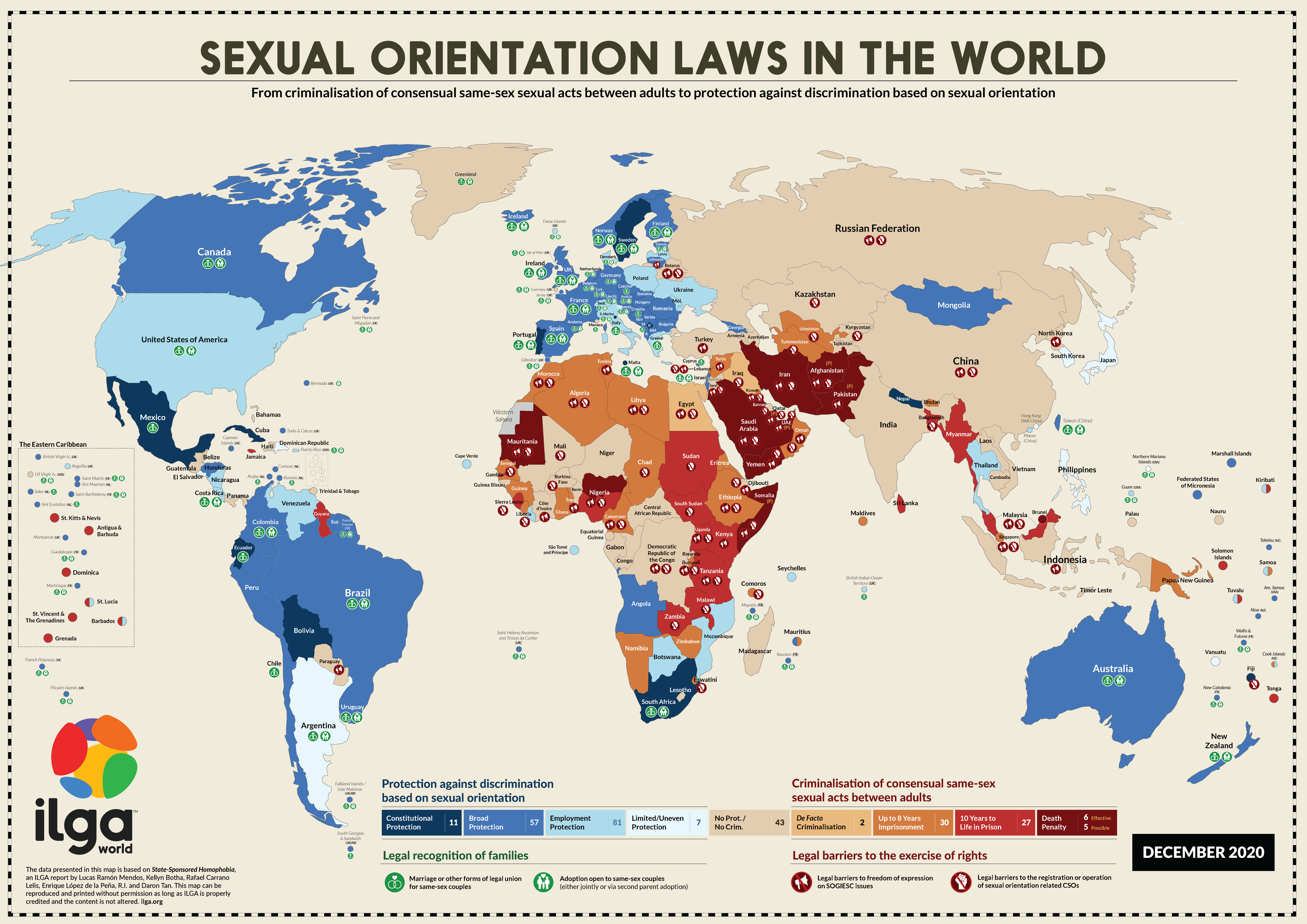LGBT+ rights: Which countries around the world criminalise homosexuality?
Seventy conservative nations still discriminate against gay community in law while 11 threaten death penalty
Your support helps us to tell the story
From reproductive rights to climate change to Big Tech, The Independent is on the ground when the story is developing. Whether it's investigating the financials of Elon Musk's pro-Trump PAC or producing our latest documentary, 'The A Word', which shines a light on the American women fighting for reproductive rights, we know how important it is to parse out the facts from the messaging.
At such a critical moment in US history, we need reporters on the ground. Your donation allows us to keep sending journalists to speak to both sides of the story.
The Independent is trusted by Americans across the entire political spectrum. And unlike many other quality news outlets, we choose not to lock Americans out of our reporting and analysis with paywalls. We believe quality journalism should be available to everyone, paid for by those who can afford it.
Your support makes all the difference.Qatari doctor Nas Mohamed, 35, has given an exclusive interview to The Independent in which he comes out as gay publicly for the first time, casting an important spotlight on homophobia and sexual discrimination in his home country.
Now living and working in San Francisco, California, Dr Mohamed says he no longer feels safe in the Gulf state, where homosexuality is illegal.
Gay Qataris are forced to remain in the closet for fear of being entrapped, harassed and jailed by police and risk social ostracism, abuse and violence if their sexuality should become known.
“I already lost everything – my citizenship, my family and my financial security in Qatar,” Dr Mohamed says. “For us to change things for LGBT+ Qataris, we need more people to come out.”
He movingly describes his first experience of visiting a gay club and returning home only to break down in tears.
“I thought my life is in crisis,” he recalled. “I thought I was going to go to hell, my life is damned. That was the main thing. And then I thought about the risk of anyone finding out. I genuinely feared I would be killed if anyone knew.”
The issue is particularly acute in Qatar as a bogus perception exists that gay men are acting as Western “pawns” working to undermine the country’s established Islamic and conservative values.
Dr Mohamed’s brave decision comes in the same week that Blackpool footballer Jake Daniels, 17, became the first male playing professional since Justin Fashanu in 1990 to come out as gay.
The two stories taken together invite renewed scrutiny of FIFA’s decision to award Qatar the chance to host the next World Cup in six months’ time, a choice that has already attracted strong criticism in light of the country’s record on human rights and, in particular, its treatment of migrant labourers, 37 of whom are said to have died while working on the construction of stadia to accommodate the tournament between 2014 and 2020.
But Qatar is just one of 70 nations identified by the International Lesbian, Gay, Bisexual, Trans and Intersex Association (ILGA) in which same-sex relations are still outlawed in 2022.
The ILGA publishes a map every year outlining the legal status of LGBT+ citizens around the world and the most recent is available to view below.

It lists 11 countries in which homosexuality is illegal and potentially punishable by the death penalty: Afghanistan, Brunei, Iran, Mauritania, northern Nigeria, Pakistan, Saudi Arabia, Somalia, UAE, Qatar and Yemen.
The map cites a further 27 countries where conviction can result in a maximum penalty of 10 years or life behind bars, another 30 with a maximum sentence of eight years in prison and two more with de facto criminalisation in place.
The vast majority are situated across Africa, the Middle East and South Asia.




Join our commenting forum
Join thought-provoking conversations, follow other Independent readers and see their replies
Comments